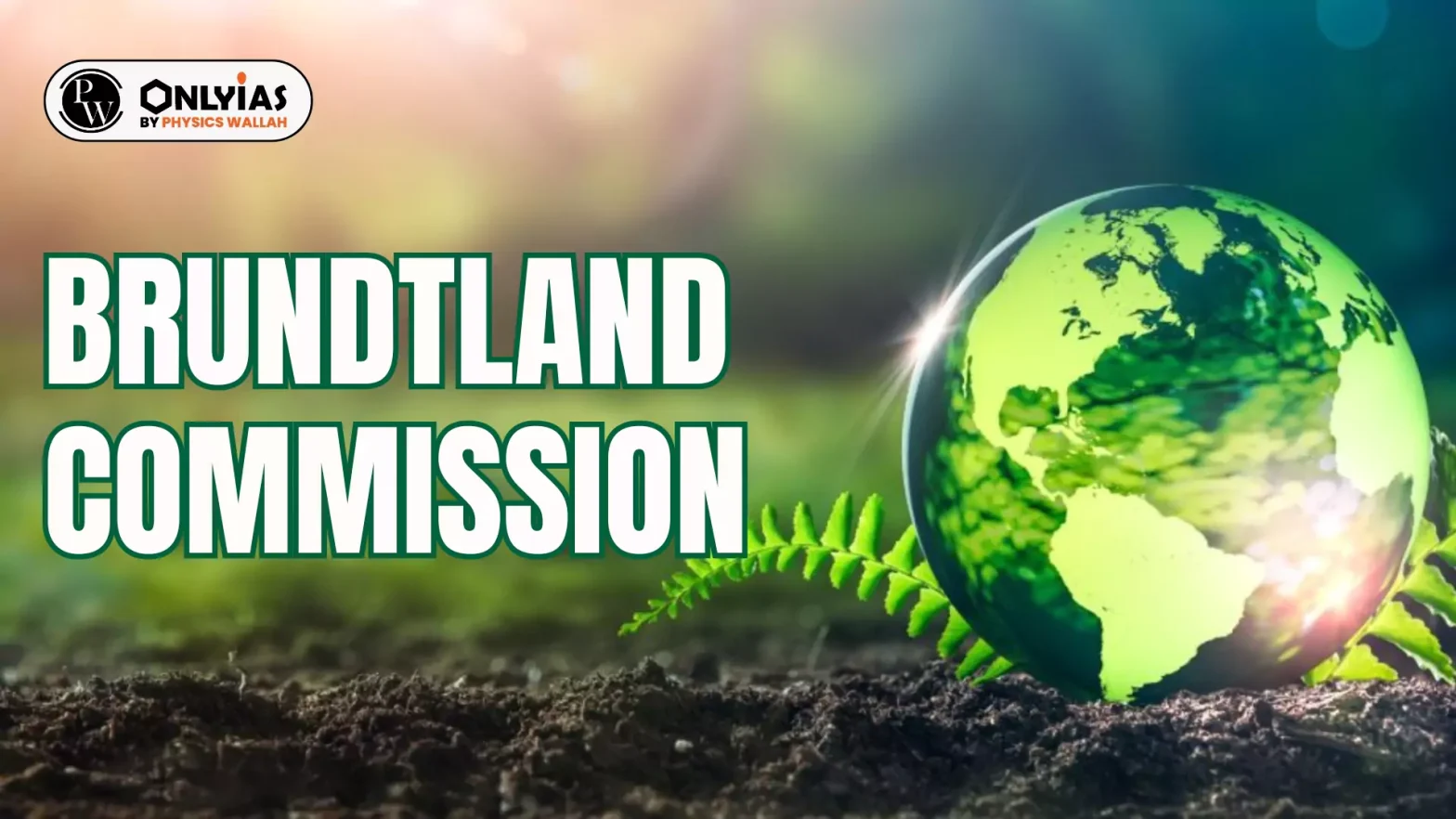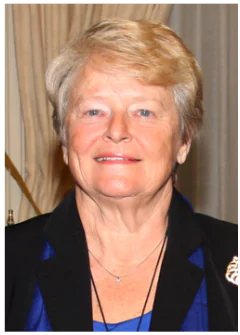Discover how the Brundtland Commission redefined sustainability and laid the foundation for global progress. Learn why the Brundtland Commission matters today!

Brundtland Commission which is officially known as the World Commission on Environment and Development (WCED) has played a key role in shaping global efforts toward sustainable development. This commission was established by the United Nations in 1983 and chaired by Gro Harlem Brundtland and this commission introduced the concept of sustainable development, which has since become a cornerstone of international environmental and developmental policy.
Brundtland Commission report, Our Common Future, laid the groundwork for critical events like the Earth Summit of 1992, which advanced the sustainable development agenda through frameworks like the Rio Declaration, Agenda 21, and Forest Principles.
The Brundtland Commission was developed to address the growing concern about the deteriorating environment and its implications for global development. This principle highlighted the interconnectedness of environmental health, economic growth, and social equity, recognizing that these elements must work in harmony to achieve a sustainable future. This principle of sustainable development became the cornerstone of the Brundtland Commission Report 1987, also known as Our Common Future.
Here are the key objectives of the Brundtland Commission, aimed at promoting sustainable development by addressing global environmental, economic, and social challenges:
| Brundtland Commission Overview | |
| Aspect | Details |
| Established | 1983 |
| Established by | United Nations |
| Official Name | World Commission on Environment and Development (WCED) |
| Chairperson | Dr. Gro Harlem Brundtland |
| Purpose | To address global environmental and developmental issues and propose long-term solutions. |
| Major Publication | “Our Common Future” (1987), also known as the Brundtland Report |
| Key Concept Introduced | Sustainable Development |
| Definition of Sustainable Development | Development that meets the needs of the present without compromising the ability of future generations to meet their own needs. |
| Primary Focus Areas | Environmental conservation, economic development, and social equity |
| Significance | Influenced key global policies like the Rio Earth Summit (1992) and the creation of Agenda 21. |
| Legacy | The basis for subsequent international efforts like the UN Sustainable Development Goals (SDGs). |
The Brundtland Commission was formed in response to resolve consistent global challenges, including:
To address such sort of challenges, the UN General Assembly passed Resolution 38/161 through which the Brundtland Commission was established in 1983. Under the leadership of Gro Harlem Brundtland, the commission aspired to explore long-term strategies for achieving sustainable development.
The Brundtland Commission Report 1987 also titled ‘Our Common Future’, is one of the most significant documents in global sustainability. It introduced the concept of sustainable development and laid out actionable recommendations for addressing the challenges of environmental degradation and global inequality to the world.
The vision of this report inspired global initiatives which include the adoption of the United Nations 2030 Agenda for Sustainable Development and its Sustainable Development Goals (SDGs).
The report remains an influential landmark in global policy-making for many reasons:
The Brundtland Commission Report 1987 is still referenced in modern discussions on climate change, biodiversity conservation, and economic equity because of its ongoing relevance.
While this influential document is widely complimented, the Brundtland Commission has also faced criticism:
The Brundtland Commission has left an unforgettable mark on the global sustainable development agenda. Its contributions include:
Gro Harlem Brundtland was a Norwegian politician and environmental supporter, who chaired the Brundtland Commission and brought significant expertise to its mission.

Her leadership was instrumental in shaping the commission’s vision and ensuring its global impact.
The Sustainable Development Goals (SDGs) adopted initially in 2015, were rooted in the principles of sustainable development as defined by the Brundtland Commission. The Commission’s focus on integrating environmental, economic, and social dimensions inspired the comprehensive framework of the SDGs while addressing global challenges to ensure a balanced and inclusive future.
| Goal Number | Goal | Objective |
| 1 | No Poverty | End poverty in all its forms everywhere. |
| 2 | Zero Hunger | End hunger, achieve food security, improve nutrition, and promote sustainable agriculture. |
| 3 | Good Health and Well-being | Ensure healthy lives and promote well-being for all at all ages. |
| 4 | Quality Education | Ensure inclusive and equitable quality education and promote lifelong learning opportunities for all. |
| 5 | Gender Equality | Achieve gender equality and empower all women and girls. |
| 6 | Clean Water and Sanitation | Ensure availability and sustainable management of water and sanitation for all. |
| 7 | Affordable and Clean Energy | Ensure access to affordable, reliable, sustainable, and modern energy for all. |
| 8 | Decent Work and Economic Growth | Promote sustained, inclusive, and sustainable economic growth, full and productive employment. |
| 9 | Industry, Innovation, and Infrastructure | Build resilient infrastructure, promote inclusive and sustainable industrialization, and foster innovation. |
| 10 | Reduced Inequality | Reduce inequality within and among countries. |
| 11 | Sustainable Cities and Communities | Make cities and human settlements inclusive, safe, resilient, and sustainable. |
| 12 | Responsible Consumption and Production | Ensure sustainable consumption and production patterns. |
| 13 | Climate Action | Take urgent action to combat climate change and its impacts. |
| 14 | Life Below Water | Conserve and sustainably use the oceans, seas, and marine resources for sustainable development. |
| 15 | Life on Land | Protect, restore, and promote sustainable use of terrestrial ecosystems, forests, and biodiversity. |
| 16 | Peace, Justice, and Strong Institutions | Promote peaceful and inclusive societies for sustainable development and provide access to justice. |
| 17 | Partnerships for the Goals | Strengthen the means of implementation and revitalize the global partnership for sustainable development. |
For aspirants who are preparing for the UPSC exam, the Brundtland Commission is a key topic in areas like environment, sustainable development, and international relations. The “Brundtland Commission” frequently appear in the syllabus under subjects like Environment & Ecology and Governance.
Key Points for UPSC are as follows:
In UPSC examinations, questions like “What is Brundtland Commission?” or “Why was Brundtland Commission formed?” are common requiring aspirants to understand its history, objectives, and impact.
The Brundtland Commission played a transformative role in redefining development for a globalized world. By advocating for sustainable development, it provided a blueprint for balancing economic growth with environmental conservation. The Brundtland Commission Report 1987 remains a cornerstone document for understanding the interconnected challenges of development, equity, and environmental sustainability.
Ready to boost your UPSC 2025 preparation? Join PW’s UPSC online courses today!
UPSC Exam 2025 Related Articles
UPSC Prelims 2025 Exam
UPSC Notification 2025
UPSC Preparation 2025
UPSC Eligibility 2025
UPSC Exam Pattern
UPSC Syllabus
The Brundtland Commission, or WCED, introduced sustainable development as balancing present needs without harming future generations.
It was created to address global challenges like environmental degradation, economic inequality, and social equity through sustainable policies.
The Brundtland Commission was established in 1983 by the United Nations to explore sustainable development strategies.
The report popularized sustainable development, influenced the Rio Declaration, and laid the foundation for the Sustainable Development Goals.
Understanding its principles and legacy aids in tackling questions related to sustainable development, global policies, and environmental governance.
The commission’s work influenced the Earth Summit 1992, resulting in key frameworks like Agenda 21 and the Rio Declaration on sustainable development.
<div class="new-fform">
</div>